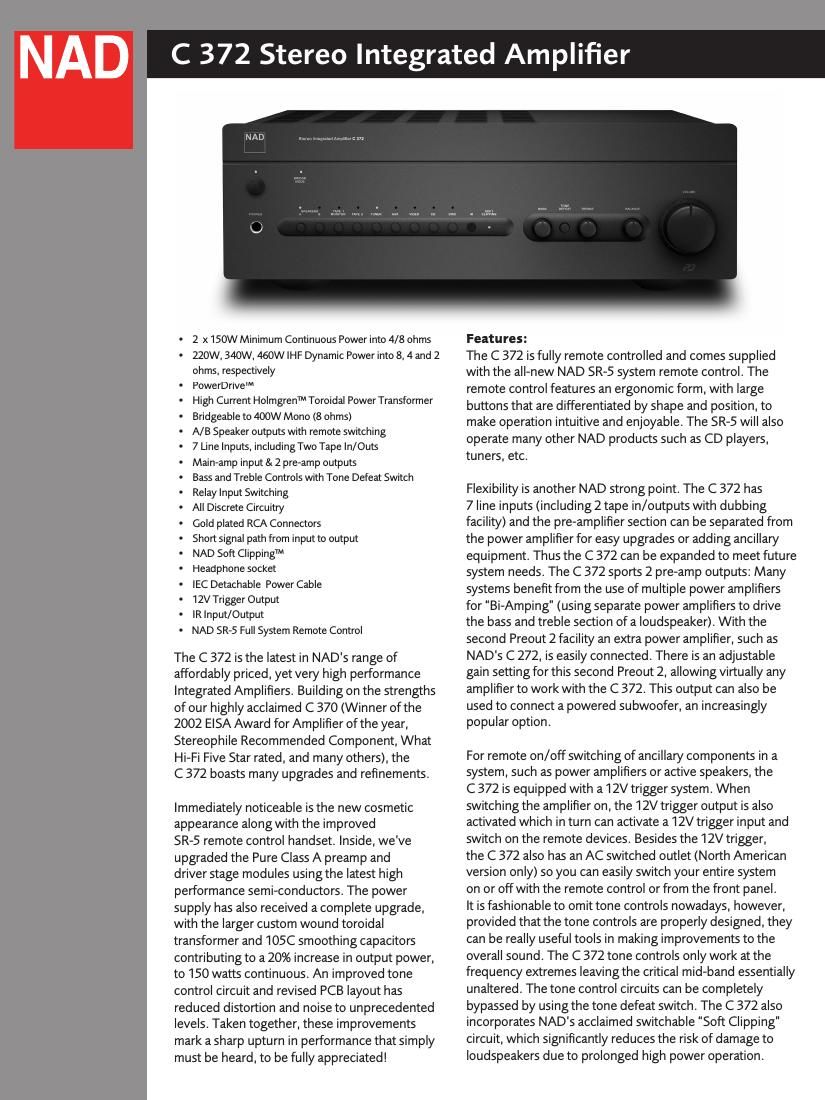Nad C 372 Brochure
This is the 2 pages manual for Nad C 372 Brochure.
Read or download the pdf for free. If you want to contribute, please upload pdfs to audioservicemanuals.wetransfer.com.
Page: 1 / 2

This is the 2 pages manual for Nad C 372 Brochure.
Read or download the pdf for free. If you want to contribute, please upload pdfs to audioservicemanuals.wetransfer.com.
